![]()
Mon, Aug 29, 2011 | Turkey Analyst, vol. 4 no. 16 | By Halil M. Karaveli
Erdogan’s War: Will Turkey’s Most Powerful Leader Since Ataturk Succeed in Securing the Country’s Unity?
This article was first published in the Turkey Analyst (www.turkeyanalyst.org), a biweekly publication of the Central Asia-Caucasus Institute & Silk Road Studies Program Joint Center. © Central Asia-Caucasus Institute & Silk Road Studies Program Joint Center, 2011.
Attacks carried out by Kurdish separatists since mid-July have set Turkey on the road to war. The Turkish government is determined to exact a heavy price from the Kurdish insurgents, and the PKK militants seem to be as determined to provoke an ethnic conflagration. As he is about to teach the Kurdish insurgents a severe lesson, Prime Minister Recep Tayyip Erdoğan faces what could be the greatest challenge of his career. The question is if the unparalleled power and authority that Erdoğan has assembled will ultimately suffice to secure Turkey’s unity.
Background
On August 28, 2011, three Turkish soldiers were killed in the southeastern town of Hakkari. On the same day, ten sunbathing tourists were lightly injured when an explosive device was set off on a beach in Kemer, a tourist resort near the city of Antalya on the Mediterranean coast. Both incidents are but the latest in a string of attacks that the Kurdistan Workers’ party (PKK) has carried out since the middle of July. Nearly fifty Turkish soldiers have been killed since July 14, when the Kurdish separatists launched their new offensive. On that date, thirteen soldiers were killed in an ambush in Silvan in the province of Diyarbakır. Then on August 17, eleven more soldiers were slain in another ambush, this time on a mountain road in the province of Hakkari. The Kurdish separatists have announced that they are also going to target Turkey’s centers of tourism; the relatively minor blast on the beach in Kemer on August 28 could be a precursor of deadlier terrorist attacks.
The attacks have set Turkey on the road to war. The Turkish air force has pounded the camps of the PKK in northern Iraq, and the army is amassing troops in the southern border area, in what appears to be a build-up for a land offensive into northern Iraq. After the first attack that left thirteen soldiers dead, Prime Minister Erdoğan stated that Turkey was going to show restraint for the duration of the Muslim holy month of Ramadan. But when the PKK struck again on August 17, Erdoğan rescinded, declaring that Turkey had run out of patience; the ensuing air campaign against PKK targets in northern Iraq represented only the first phase of Turkey’s response. Erdoğan put the broader Kurdish movement on notice when he vowed that those who fail to distance themselves from the “terrorist organization” would “pay a price”, an undisguised threat directed against the representatives of the Kurdish Peace and Democracy Party (BDP) that won a record thirty six seats in the general election on June 12, 2011, but who are boycotting parliament in protest against the continued incarceration of six of its deputies who are charged with terrorism-related offenses.
Selahattin Demirtaş, a leading spokesman of the BDP, retorted that the Kurdish movement is already subjected to the repression of the state as it is; he noted that almost one thousand BDP politicians – among whom several elected mayors – have been arrested since April 2009. But Demirtaş also stated that he thinks that the PKK “is doing wrong”, and speculated that “someone is trying to provoke civil war”. Indeed, it may very well be that the PKK is trying to unleash a devastating nation-wide ethnic conflagration, with the ultimate purpose of wrenching the control over the Kurdish southeast of the country from Ankara.
The PKK’s escalation has in fact caught Turkey by surprise; just a few days before the attack in Silvan on July 14, Abdullah Öcalan, the imprisoned leader of the PKK, had stated that there was no need to resort to a “revolutionary people’s struggle” as he was about to conclude an agreement with the Turkish state about the formation of a “peace council”. Since the PKK launched its offensive, Öcalan’s communications with the outside world have been severed; the imprisoned Kurdish leader is no longer allowed to maintain any contact with his organization. The repeated requests of his lawyers to visit him on his prison island İmralı have been rejected. Yet, punishing Öcalan for his inability to secure the acquiescence of the PKK to a peace accord amounts to rewarding those who are defying him. With the PKK at least for the moment having escaped the control of Öcalan, the question is to whom that control has shifted. Hostile neighbors have used the PKK against Turkey before, and commentators in Turkey generally suspect that the Syrian regime, with which relations have deteriorated dramatically lately, once again is exerting a sinister influence. In fact, Syrian Kurds are believed to make up a significant portion of the militants of the PKK.
Implications
The control over the Kurdish movement in Turkey has long been divided between three power centers: İmralı, Öcalan’s prison island; the Kandil mountains in northern Iraq from where Murat Karayılan, the acting chief of the PKK conducts – or has until recently conducted – operations; and finally the political arm of the movement, which is presently known by the acronym BDP. Lately, another grouping, the umbrella organization Democratic Society Congress (DTK), in Diyarbakır has taken on prominence. Indeed, the DTK conspicuously chose July 14, the same day that thirteen Turkish soldiers were killed, to declare “democratic autonomy” in the Kurdish region of Turkey. Yet the choice may have been a mere coincidence; Aysel Tuğluk, the co-chairwoman of the DTK, who is also a BDP deputy, expressed her regret over the choice of date for the declaration of autonomy. The declaration nonetheless contributes to the impression that the Kurdish movement is bent on pushing its agenda unilaterally, not seeking to engage in any conversation with the Turkish side.
Not only Turkish nationalists – the Kurds’ traditional foes – but Turkish liberals also vehemently denounce the Kurdish movement. The representatives of the Kurds are notably accused of failing to appreciate the benevolence of the state. The supporters of the ruling Justice and Development Party (AKP) among liberal intellectuals and pundits emphasize that the state has changed and assert that it is accommodating toward the Kurds. They point to the talks that have been conducted with Öcalan, and refer to Prime Minister Erdoğan’s pledge to introduce a democratic constitution, which presumably would address the demands of the Kurds.
The Kurds, however, can, not without justification, retort that there is in fact very little that gives them reason to expect that they will be treated as equal interlocutors in a meaningful dialogue. The Kurdish side points out that the incarceration of elected Kurdish politicians does not bolster the claim of the supporters of the ruling AKP that the Turkish state has changed as much as it is supposed to have done. They remark that Erdoğan’s manner toward them has consistently been high-handed, and that they are treated with disdain. Although he has authorized that peace preliminaries be held with Öcalan, Erdoğan did not refrain from stating during the recent election campaign that he would have hung the imprisoned PKK leader if he had been in office when he was caught and brought to Turkey.
And when Erdoğan recently invited the representatives of the opposition parties to discussions about the new constitution that are scheduled to begin in earnest when parliament reconvenes in October, he made it plain that he has little interest in deliberations with the BDP deputies: “they may choose to come or not to come, it’s entirely up to them to decide whether or not they want to participate”, he said. There was nothing in that remark that suggested that Erdoğan recognizes that the presence of the representatives of a party that was sent to parliament by three million voters, carrying between sixty and ninety percent of the votes in the Kurdish provinces, is indispensable to any deliberation that is supposedly going to address the grievances of those voters.
Yet it is nonetheless true that the Turkish state has changed; with its power broken, the military is no longer in any position to throw up roadblocks to liberalization, and there are no death squads operating in the Kurdish region as was the case during the dirty war that the state waged against the Kurds in the 1990s. On a fundamental level, the state has ceased to believe that society can be held together by an iron fist from above. Instead, it is trying to explore a middle course, allowing cultural diversity to express itself, without therefore compromising the control of the state. That explains the puzzling contradiction of Turkey’s Kurdish policy under the AKP, which is attempting to subdue the Kurdish movement – a political rival in the Kurdish region – while at the same time holding out the prospect of a democratic constitution, which Erdoğan has pledged is going to “belong to the Turks, Kurds”, as well as to every other ethnic and religious group in Turkey.
That is in fact a pledge that challenges the ingrained notion among the Turks that they are the undisputed masters and sole owners of the country, and it is suggestive of the intellectual evolution of the state elite. Yet although the state elite by and large has come to recognize that it is in the interest of the state to accommodate diversity – although it still remains to be worked out how state control and societal freedom is going to be reconciled in practical terms – the societal majority remains committed to ethnic uniformity. And Erdoğan has mostly chosen to cater to the nationalism of the Turkish majority instead of preparing it for the necessary work ahead – agreeing on a social contract for how to live together. If the logic of war prevails for too long, that work will definitely be deferred to a distant future.
Conclusions
The most powerful leader of Turkey since Atatürk, Prime Minister Erdoğan exudes all the self-confidence of a leader that has defeated every adversary so far. Yet as he is about to teach the insurgent Kurds a severe lesson, Erdoğan faces the greatest challenge of his career. The question is if the unparalleled power and authority that Erdoğan has assembled will ultimately suffice to secure Turkey’s unity.
The cords of societal cohesion are already damaged and will have frayed further when Turkey emerges from the pending confrontation; the Turkish government is determined to exact a heavy price from the Kurdish insurgents, and the PKK seems to be as determined to provoke an ethnic conflagration. Turks and Kurds alike are overestimating their strength, failing to see that they need to engage each other in a spirit of restraint and generosity.
Halil M. Karaveli is Senior Fellow and Managing Editor of the Turkey Analyst at the Central Asia-Caucasus Institute and Silk Road Studies Program Joint Center.



 RSS
RSS

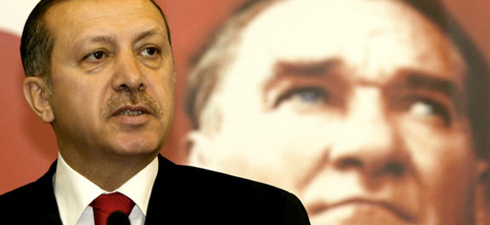
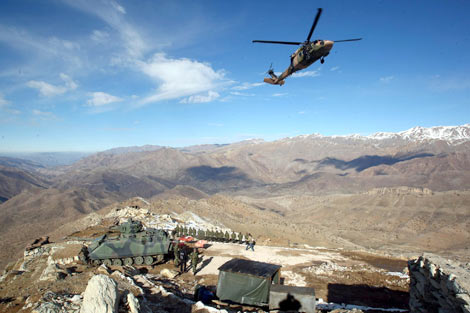
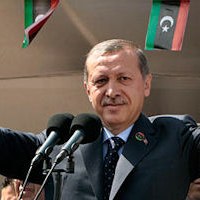
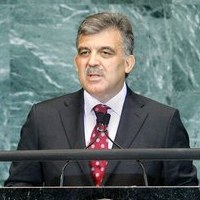
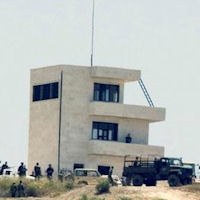
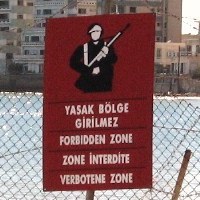
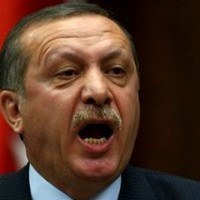




Erdogan’s War: Will Turkey’s Most Powerful Leader Since Ataturk Succeed in Securing the Country’s Un http://t.co/SyJFQ9W
Erdogan’s War: Will Turkey’s Most Powerful Leader Since Ataturk Succeed in Securing the Country’s Un http://t.co/SyJFQ9W